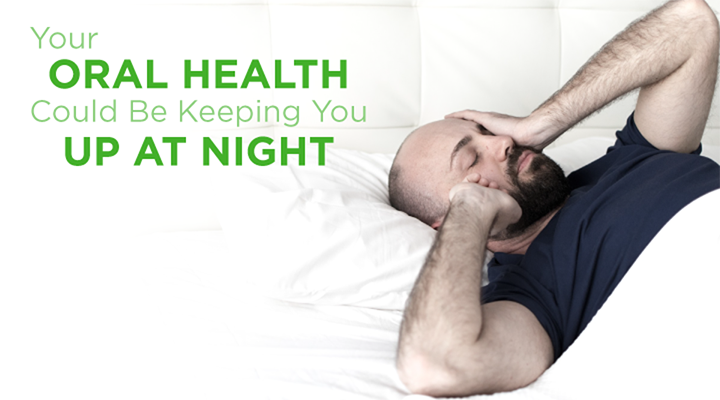
If snoring or teeth grinding is affecting your sleep, don’t ignore it any longer; it’s likely to get worse. Your dental health and sleep habits could be signaling that an underlying condition is impacting your rest, like sleep apnea — though not all snoring is a sign that something is wrong.
About 40 percent of adult men and 24 percent of adult women snore every night. When we’re snoozing and snoring, the airflow from breathing causes the tissue in the back of our throat to vibrate. The narrower your airway is, the louder your snoring will be.
About half of individuals who snore also have a sleep disorder. Sleep apnea is a condition where your airway becomes too narrow and closes, causing you to make more of a choking noise and wake up with a start. If you wake up in the middle of the night gasping for air, have ongoing sleepiness during the day, and sleep with your mouth open, talk with your physician about a possible sleep disorder.
If you are diagnosed with sleep apnea, a common treatment is using a positive airway pressure device (CPAP) while sleeping. This device fits over your head and nose, and may also cover the mouth. It gently blows air into your airway, helping to keep it open and avoid narrowing during sleep.
Using a CPAP device can also affect your oral health, much like using an inhaler or taking medication for other conditions. A CPAP can cause dry mouth. Without enough saliva in your mouth, bacteria and plaque can build up in the mouth. This makes a person more vulnerable to gum disease and tooth decay.
One in four patients with sleep apnea also habitually grind their teeth at night. Teeth grinding, or bruxism, can have immediate side effects like headaches and jaw pain, as well as long term side effects like temporomandibular joint disorder, or TMJ. This specific joint connects your jaw to your skull, and it can become injured if you continuously grind your teeth. Not everyone who grinds their teeth develops TMJ, though.
Another outcome of teeth grinding each night is damaged teeth. If you’re gnashing, grinding, gnawing, or clenching, you can wear down your teeth over time. It can go as far as to remove their protective enamel, crack them, or wear notches into them.
It’s important to contact your dentist or primary care physician if you experience:
A mouth guard while sleeping can make a world of difference for a habitual teeth grinder.
Visit with your dentist and primary care physician to help you choose the right treatment for addressing oral health issues that keep you up at night.